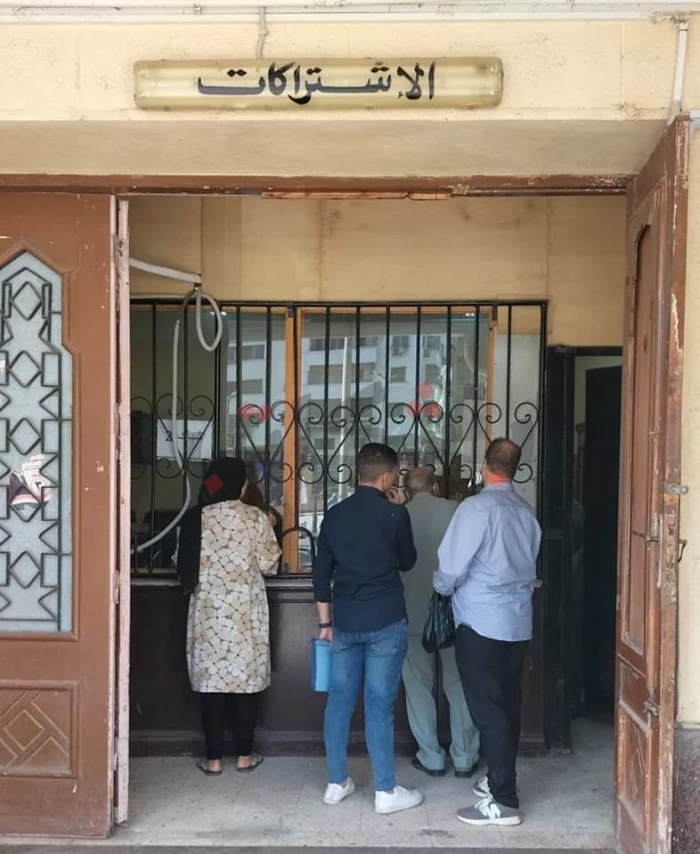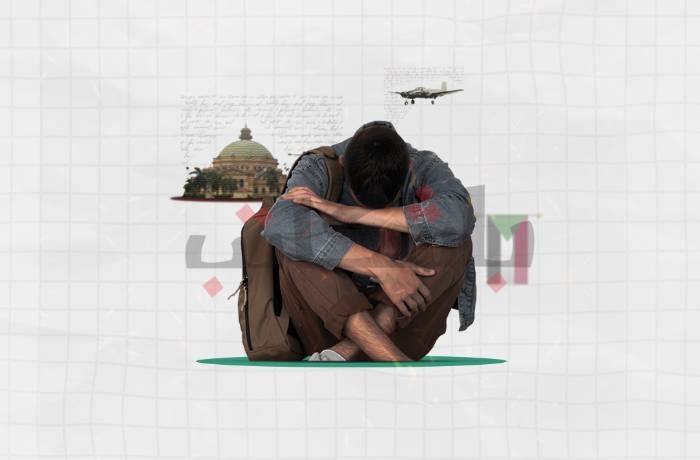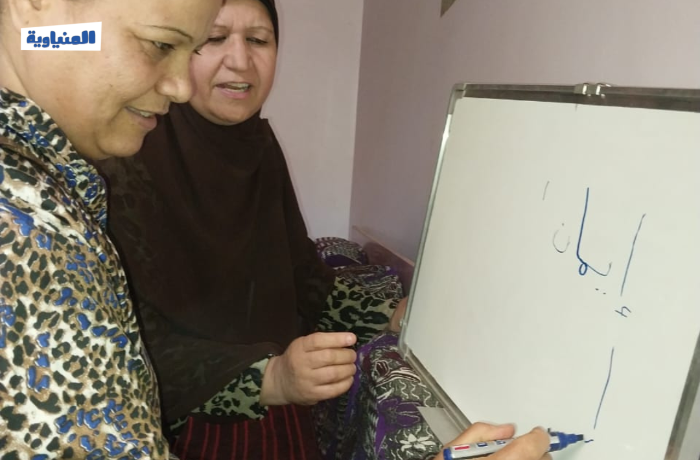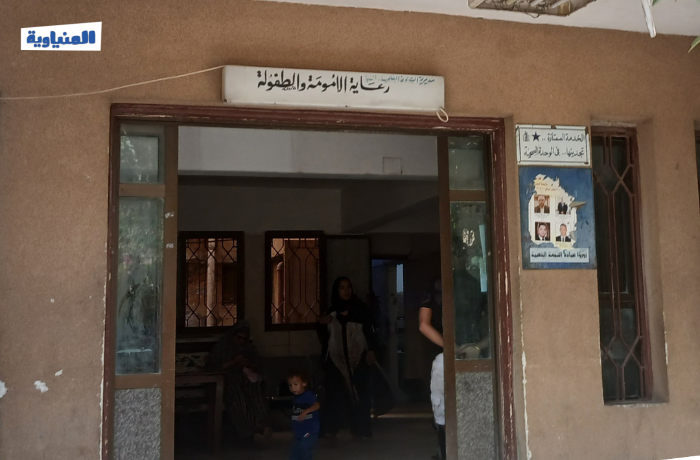Each academic year, the Egyptian Railways Authority announces subsidized student railway pass prices. This year, Facebook users in Malawi Town, Minya, or those who visit the town on a daily basis using the Egyptian Railways trains, shared images of increased fees, criticizing the higher costs and their misalignment with student budgets, adding to their academic burdens.
The picture details the subscription prices for the 2024-2025 academic year, covering a nine-month period for third-class trains in three categories: improved, ventilated, and air-conditioned. The lowest subscription price is 1,010 EGP for nine-months third-class improved category, for the distance between Malawi and Minya. For the same period and route, the third-class ventilated category costs 2,275 EGP, while third-class air-conditioned pass reaches 3,120 EGP.
For a nine-months subscriptions period between Deir Muas and Qena governorate, the highest pass value for third-class trains, improved category, was 3,960 EGP. The ventilated category for the same duration and distance was priced at 5,650 EGP, while the air-conditioned third-class pass reached 9,025 EGP.
Misalignment with Students’ Budgets
Numerous university students have voiced their discontent over the high subscription prices, particularly given that student railway pass is supposed to be subsidized, according to the Egyptian Railway Authority’s data. Abdulrahman Ra’fat, a third-year student at Faculty of Physical Education, Minya University and a resident of Malawi, expressed his inability to afford the train pass due to the escalating costs that exceed his financial capacity. He noted that the subscription prices have been doubling annually.
Ra’fat explained that in 2022, his first year at university, the cost of a third-class (improved or Tahya Masr) railway pass for three months was 180 EGP. In 2023, this increased to 360 EGP for the same duration, and by the second semester, the price exceeded to 400 EGP. This year, the subscription fee from Malawi town station to Minya station has soared to 1,010 EGP. He questioned whether this sharp increase indicates a withdrawal of support for students.
This year, Ra’fat could not afford the railway pass, and thus, he didn’t take the train to commute from Malawi to the university. He informed “Bashkateb” that despite the high subscription fees, the trains he relied on, both in terms of class and schedule, were canceled. He noted that the Russian train he had been using since he joined university, train number 1004, was canceled and replaced with a Russian air-conditioned train. Additionally, train number 160, which used to arrive at Minya station at 4 pm, was also canceled, leaving him with only two options to return: a train at 2 pm and another at 02:30 pm and another at 02:30 pm, both of which do not align with his lecture schedule.
“Alternative transportation to university has become prohibitively expensive, with the cost of traveling from Malawi to Minya reaching 40 EGP,” added Ra’fat.
Starting Tuesday, October 1st, 2024, the Egyptian National Railway Authority announced that students with a third-class air-conditioned railway pass can travel on a third-class air-conditioned train or a lower-class train without reserving a seat. To reserve a seat, students must visit the ticket window and pay 10 EGP for third-class air-conditioned or 5 EGP for lower-class air-conditioned, with a limit of two trips per day (one round trip). The Authority also specified that third-class air-conditioned railway pass holders traveling on higher-class trains (first and second-class air conditioned) will be treated as passengers without a ticket and will be required to pay the fare and the stipulated fine.
According to the Egyptian Railways Authority’s official website, students’ railway passes cover a maximum travel distance of 400 km and are valid for periods ranging from 3 to 9 months. These subscriptions are available to regular school and university students, as well as guided external study students, specifically for third-class Tahya Masr, third-class ventilated, and third-class air-conditioned categories. The railway pass is subsidized by 81.25%. To apply, students must complete all required data, obtain approval from their school or university, and have the form stamped with the Republic’s emblem by their respective institution.
Microbuses V.S. Trains
The subscription price increase didn’t just impact Abdulrahman Ra’fat budget. Ahmed Hammam, a third-year student at Faculty of Physical Education, Minya University and resident of Maghagha town, also stopped purchasing railway passes. Despite this, he continues to use the train daily to commute to university, spending 50 EGP per day on round-trip tickets. Hammam noted that, with a simple calculation, the cost of a train ticket is comparable to that of a microbus fare. Additionally, train schedules are fixed, providing more reliability compared to the variable microbus schedules.
Hammam noted that last year, he obtained a third-class ventilated train pass card for 600 EGP. However, this year, the railway pass fee has increased to 1,430 EGP. Discouraged by the substantial price hike, Hammam chose not to renew his subscription and instead opted for the microbus.
Calculations show that the average cost of a round-trip train ticket from various towns to Minya is 40 EGP. For students commuting to university three days a week, this amounts to an average monthly expense of 480 EGP.
Moving Residence Cheaper than Commuting
Faced with steep railway pass and transportation costs, Mohamed Abdullah had to relocate to Beni Suef to be closer to the university, avoiding the higher expenses associated with commuting.
Abdullah, a third-year law student at Beni Suef University, was taken aback by the subscription price hike from 385 EGP to 2,275 EGP, “which equates to the cost of living in Beni Suef, away from my hometown.” To evade the high transportation costs, he decided to relocate to Beni Suef governorate, avoiding the need to pay for the railway pass and the commute from his home in Maghagha town.
He added, “in previous years, commuting by train to lectures was far from ideal- it was exhausting, but I endured it due to the high cost of living away from home for my studies. Now that the costs have become comparable, I’ve chosen to relocate instead.”









